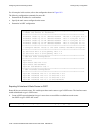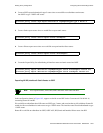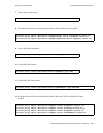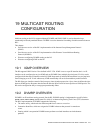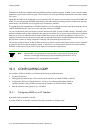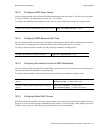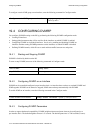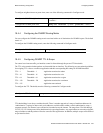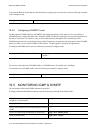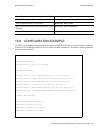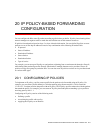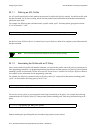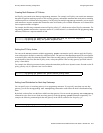
19-4 Riverstone Networks RS Switch Router User Guide Release 8.0
Configuring DVMRP Multicast Routing Configuration
To configure a static IGMP group on an interface, enter the following command in Configure mode:
19.4 CONFIGURING DVMRP
You configure DVMRP routing on the RS by performing the following DVMRP-configuration tasks:
•
Creating IP interfaces
•
Setting global parameters that will be used for all the interfaces on which DVMRP is enabled
•
Configuring DVMRP on individual interfaces. You do so by enabling and disabling DVMRP on
interfaces and then setting DVMRP parameters on the interfaces on which DVMRP is disabled
•
Defining DVMRP tunnels, which IP uses to send multicast traffic between two end points
19.4.1 Starting and Stopping DVMRP
DVMRP is disabled by default on the RS.
To start or stop DVMRP, enter one of the following commands in Configure mode:
19.4.2 Configuring DVMRP on an Interface
DVMRP can be controlled/configured on per-interface basis. An interface does not have to run both DVMRP and
IGMP together. DVMRP can be started or stopped; IGMP starts and stops automatically with DVMRP.
To enable IGMP on an interface, enter the following command in the Configure mode:
19.4.3 Configuring DVMRP Parameters
In order to support backward compatibility, DVMRP neighbor timeout and prune time can be configured on a
per-interface basis. The default neighbor timeout is 35 seconds. The default prune time is 7200 seconds (2 hours).
&RQILJXUHDVWDWLF,*03JURXSRQDQLQWHUIDFH
igmp join group
<ip-addr/subnet mask>
interface
<name/ip-addr>
Start DVMRP.
dvmrp start
Stop DVMRP.
no dvmrp start
Enable DVMRP on an interface.
dvmrp enable interface
<ipAddr>|<interface-name>



